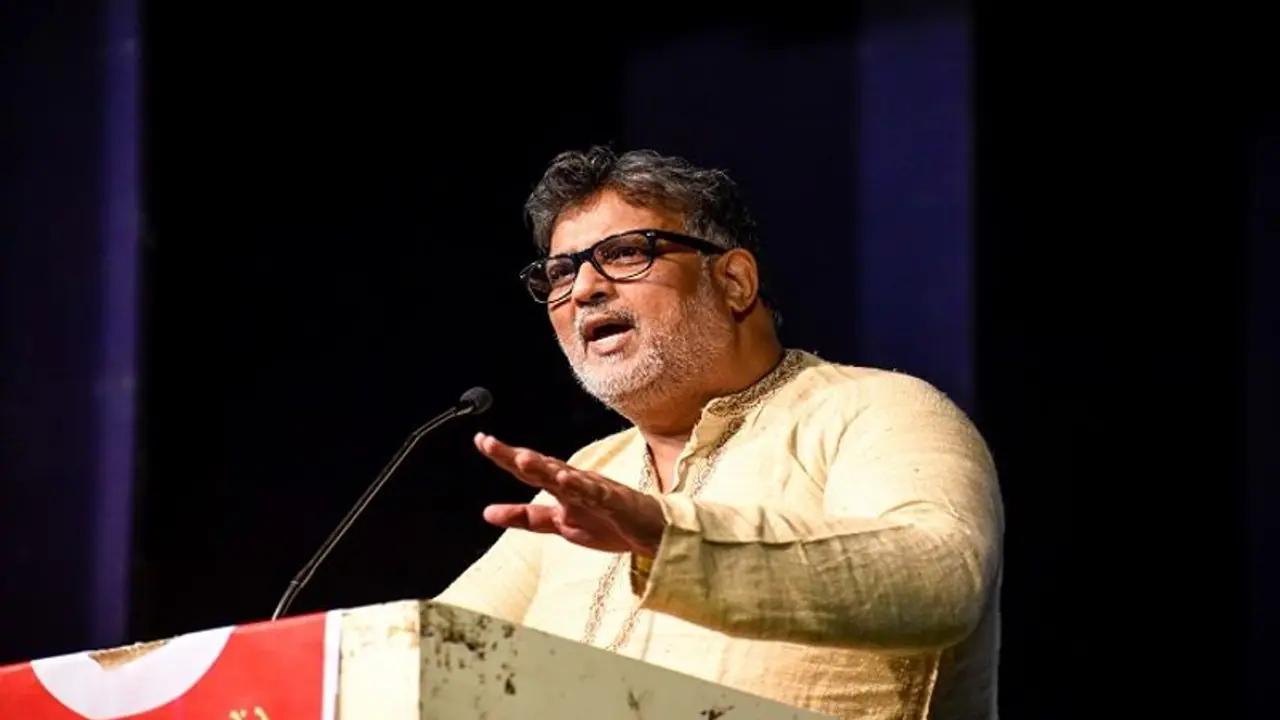Guided by Mahatma Gandhi, the Quit India Movement fervently implored the Indian populace to embrace nonviolent civil disobedience as a means to voice their collective yearning for liberation and to press for the exit of British authorities from their homeland.
As the nation commemorated Quit India Day on August 9, a historic event in India's struggle for independence, Mahatma Gandhi's great-grandson, Tushar Gandhi, found himself detained at Mumbai's Santa Cruz Police Station. Expressing his thoughts on the situation, Tushar Gandhi took to Twitter to share this incident and its significance.

Tushar Gandhi highlighted the extraordinary nature of his detention, emphasizing that it marked the first instance of his detainment in the post-Independence era. He was apprehended as he left his residence to participate in the observance of Quit India Day. In his tweet, he proudly connected this detention to the historical legacy of his great-grandparents, Mahatma Gandhi and Kasturba Gandhi, who were also arrested by the British police on this very date years ago.
Monsoon Session: 6 Bills up for consideration, approval in Rajya Sabha; check details
Quit India Day holds special significance as it commemorates a pivotal moment in India's struggle for freedom. On August 9, 1942, a notable civilian uprising occurred, symbolizing a critical phase in the fight against British colonial rule. Inspired by Mahatma Gandhi's rallying cry of "Do or Die," countless Indians took to the streets in protest against British oppression.
Tushar Gandhi's detention on such an important day serves as a poignant reminder of the sacrifices made by his forebearers and the enduring legacy of their commitment to India's independence.
August 8, 1942, marked a significant turning point in India's quest for independence from British colonial rule as Quit India Day, also recognized as the Quit India Movement or the August Movement, was launched. This historical event unfolded amidst the backdrop of World War II and was spearheaded by Mahatma Gandhi in collaboration with the Indian National Congress.
Guided by Mahatma Gandhi, the Quit India Movement fervently implored the Indian populace to embrace nonviolent civil disobedience as a means to voice their collective yearning for liberation and to press for the exit of British authorities from their homeland.
Devastating landslide in Uttarakhand: WATCH 3-storey hotel collapse in seconds; video goes viral
The aftermath of the movement witnessed a tapestry of widespread protests, strikes, and acts of civil disobedience that stretched across the length and breadth of India. In response, the British administration employed a heavy-handed approach, employing measures of repression that included the arrest of numerous nationalist leaders and the implementation of stringent measures aimed at quelling the rising upheaval.
Despite the formidable challenges and severe suppression encountered, the Quit India Movement left an indelible impact on the Indian sentiment, galvanizing the populace against the clutches of British rule.
